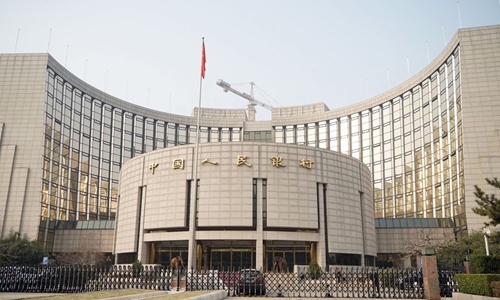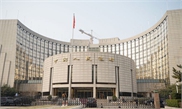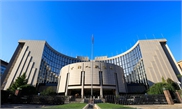
Photo taken on March 13, 2018 shows the headquarters of the People's Bank of China. (Xinhua/Cai Yang)
China kept its benchmark lending rate unchanged for the fifth consecutive month on Monday, in line with market expectations, as the country holds its monetary policy steady amid a robust economic recovery.
The People's Bank of China (PBC), the central bank, said on Monday that the one-year loan prime rate (LPR) was 3.85 percent, while the five-year LPR was 4.65 percent, the same as in August.
The one-year LPR is China's reference rate for most new and outstanding loans, while the pricing of mortgages is based on the five-year rate.
Economists interviewed by the Global Times said that they had anticipated the move, as evident signs of economic recovery in China have prompted the government to avoid further excessive monetary easing as seen in the first few months of 2020, when the economy nosedived as a result of the coronavirus epidemic.
They also forecast that the LPR would remain steady in the remaining months of this year, and it's very unlikely that the government would cut the reserve requirement ratio (RRR) in the near term.
In August, China's above-scale industrial added value rose by 5.6 percent on a yearly basis, while fixed-asset investment rose by 4.18 percent. The retail sector was a bit slower to recover, but retail sales still rose by 0.5 percent in August, the first time this year.
Experts generally expect the Chinese economic recovery to speed up in the third and fourth quarters. Some of them projected that fourth-quarter GDP growth could return to about last year's level.
"Since the real economy has shown evident signs of recovery, China does not need to use policy tools such as interest rate or RRR cuts, as long as it can keep liquidity reasonably abundant by means of open market operations," Yang Chang, an economist at the research center of Zhongtai Securities, told the Global Times on Monday.
China has frequently carried out open-market operations in recent weeks. As of September 9, the PBC had conducted reverse repos for 24 trading days in a row to guarantee inter-bank liquidity.
Veteran financial observer Zhao Qingming also said that as China is beefing efforts to clear up inter-banking violations, it's unlikely that monetary policy will become very loose during the process. China is not under pressure to reduce interest rates or the RRR level, as major international central banks are also maintaining stable monetary policies.
"The PBC is unlikely to cut the RRR in the next few months or even next year, unless the recovery of the Chinese economy falls well short of market expectations, and the stock market plunges hard," Zhao told the Global Times.
However, as consumption and employment are slow to recover, Zhao suggested that the government could still consider cutting interest rates.



